Conference Keynotes:
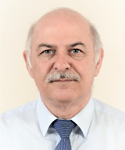
Professor Soteris Kalogirou
Cyprus University of Technology, Limassol, Cyprus
Renewable Energy Systems: Current Status and Prospects
Professor Soteris Kalogirou is at the Department of Mechanical Engineering and Materials Sciences and Engineering of the Cyprus University of Technology, Limassol, Cyprus. He is currently the elected Chair of the Department. He received his Ph.D. in Mechanical Engineering from the University of Glamorgan in 1995. In June 2011 he received from the University of Glamorgan the title of D.Sc. He is recently elected Fellow of the European Academy of Sciences.
For more than 30 years, he is actively involved in research in the area of solar energy and particularly in flat plate and concentrating collectors, solar water heating, solar steam generating systems, desalination and absorption cooling. Additionally, since 1995 he is involved in a pioneering research dealing with the use of artificial intelligence methods, like artificial neural networks, genetic algorithms and fuzzy logic, for the modelling and performance prediction of energy and solar energy systems.
He has a large number of publications as book chapters, international scientific journals and refereed conference proceedings. He is Editor-in-Chief of Renewable Energy and Deputy Editor-in-Chief of Energy, and Editorial Board Member of another eleven journals. He is the editor of the book Artificial Intelligence in Energy and Renewable Energy Systems, published by Nova Science Inc., co-editor of the book Soft Computing in Green and Renewable Energy Systems, published by Springer, editor of the book McEvoy's Handbook of Photovoltaics, published by Academic Press of Elsevier and author of the books Solar Energy Engineering: Processes and Systems, and Thermal Solar Desalination: Methods and Systems, published by Academic Press of Elsevier.
He has been a member of World Renewable Energy Network (WREN) since 1992 and is a member of the American Society of Heating Refrigeration and Air-conditioning Engineers (ASHRAE), Institute of Refrigeration (IoR) and International Solar Energy Society (ISES).
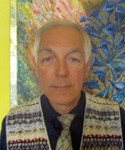
Mr Gabriele Frignani
Technical Training Service of SACMI FORNI
Heat recovery and ceramic tiles production cycle
Over the last decade, many tile-producing countries have been strongly affected by the increase in the cost of energy and legislative restrictions regarding the environment.
The impact of these factors has become an increasingly large percentage of the final product cost, especially for small and medium-sized producers.
Manufacturers of heat treatment machinery for ceramic products have been pressed to improve existing machinery and urged to design and construct more energy-efficient equipment.
Reduction in consumption has become a strategy that aims to optimize the entire ceramic production cycle and recover quantities of energy considered, until recently, to be unworthy of interest.
The main thermal machine around which this philosophy has developed is the kiln that represented - and still represents - one of the main sources of "throwaway" energy within the ceramic production cycle and which instead offers a vast range of possibilities for a more rational use of energy dispersed in the form of heat.
This note will focus the current situation of heat recovery systems in tile production cycle and some of the recent outputs emerged from the European funded DREAM project aimed at studying and developing additional possibilities in energy saving.
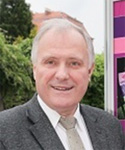
Andrzej Szczurek
Wroclaw University of Science and Technology, Wroclaw, Poland
Indoor Air quality - new environmental challenge
Andrzej Szczurek is a Professor at Wroclaw University of Science and Technology (WUST) Poland and the head of the Laboratory for Sensor Techniques and Indoor Air Quality Studies at the Faculty of Environmental Engineering WUST.
His main scientific interests comprise methods and techniques of air pollutants analysis, with particular emphasis on the application of gas sensors for environmental assessment. The important part of his research work are indoor air quality studies.
Andrzej Szczurek obtained MSc in Solid State Physics (1978) at the University of Wroclaw, Poland. Since 1978 he is with Wroclaw University of Technology (WUST) Poland, where he received PhD (1984) and DSc (2007). In 1986 he completed a postdoctoral fellowship at the Syracuse University, USA.
In the period 2007-2013 prof Szczurek was responsible for the Task: "Sensor system for measuring organic compounds" in the project "Detectors and sensors for measuring factors hazardous to environment - modeling and monitoring of threats", financed by the EU via the European Regional Development Fund and the Polish state budget (2007-2013). In the period 2013-2016 he was the Leader of the project "The variability of physical and chemical parameters in time as a source of comprehensive information about indoor air quality" funded by the National Science Centre, Poland. Currently (2018-20) he is running the project "Developing innovative, intelligent tools to monitoring the occurrence of malignant foulbrood and elevated levels of infensation with Varroa destructor in honey bee colonies" financed by the National Centre for Research and Development, Poland.
Prof. Szczurek is the author of 181 publications, including 74 indexed by SCOPUS, 56 indexed by Web of Science. Total citations: 411 (SCOPUS). His aggregated IF is 103.690 and Hirsh index h-10.
Professor is involved in multiple other activities. He is a member of the team of scientists who help Polish Ministry of Science with the list of highly ranked scientific journals for the discipline of Environmental Engineering Mining and Energetics. He yearly represents the President of WUST in the Wroclaw City Council contest of MSc thesis "Wroclawska Magnolia". Each year, an important event in his calendar is Student's Science Conference, WUST. Professor takes care of his research field popularization through Lower Silesian Science Festival.
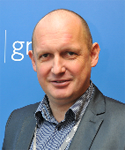
ALOJZ BUHVALD
Executive Director of Production at SIJ Metal Ravne
Possibilities and potentials for utilization of waste heat in the production of special steels
He has been the Executive Director of Production in the Slovenian steel company SIJ Metal Ravne that produces tool and special steels for the last twelve years. In addition to the management of production, a highly energy-intensive industry, a continuous optimization and maximal utilization of all energy carriers plays a very important role. He and his team of specialists have been engaged for several years in the best possible utilization of waste energy.
After he had finished his studies of metallurgy at the Ljubljana University in 1996, he started to work in the Development Department of the company SIJ Metal Ravne. He worked five years in the Department of Metallurgical Research and Development, and gained a lot of knowledge from the field of management of development projects, running researches, optimization of technologies, consulting the customers and a cooperation with external development&research institutions. After five years of work in metallurgical research and development, he joined the Department of Project Management where he concentrated on demanding projects from the field of re-engineering, process management, optimization of technological processes, investments, cost and energy efficiency, quality systems, information system and optimization of planning and education. In 2004, he took over the management of Production Central Planning Department until he was appointed the Executive Director of Production in 2007.
In 20 years of his work in the metallurgical company, he has gained a lot of experience and knowledge from various fields he has been engaged in all these years: development, technology, planning, production, investments, energy sector, controlling, information system, quality systems, human resources, education and purchasing&sales.
Symposium Keynotes:
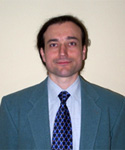
Luca Montorsi
University of Modena and Reggio Emilia, Italy
A novel Carbon Capture and Utilisation concept applied to the ceramic industry
Luca Montorsi is associate professor at the Department of Sciences and Methods for Engineering of the University of Modena and Reggio Emilia, Italy. He currently teaches two courses, Energy Conversion Systems and Applied Computational Fluid Dynamics, for the Master Degree in Management Engineering and the Master Degree of Mechatronics. He has supervised more than 50 MSc and 3 PhD students. He has participated in many national and international projects in the field of the energy efficiency of systems and components and he is currently participating to 2 HORIZON2020 projects for the reduction of the energy consumption and emissions in different industrial sectors.
His main research activities have been focused on multi-dimensional modeling of systems and components for the improvement of the design process and the development of new concepts in many areas, such as cogeneration systems, alternative fuels' combustion and processes, performance prediction of conventional and renewables energy conversion systems, fuel consumption and emissions reduction in industrial processes.
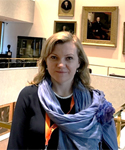
Dr Jurgita Malinauskaite
Brunel University, London, UK
Renewable energy policies in the EU
Dr Jurgita Malinauskaite is an associate Professor in law at Brunel University London. She is also a visiting Professor at the Vytautas Magnus University (Lithuania). Dr Malinauskaite is an expert in EU law, especially in the fields of Energy law and policy, and Competition law. Specifically, her current interests are in Environment, Sustainability and Renewable energy. She was the first to establish collaboration between the Law School and the Mechanical and Aerospace Engineering Department (situated in the College of Engineering, Design & Physical Sciences of Brunel University London). Dr Malinauskaite has been involved in several EU funded projects, such as Horizon 2020, as well as various other projects funded by the DG Justice and the DG Competition of the European Commission, and finally, the UK's Arts and Humanities Research Council.
She is also the author of numerous journal articles as well as two books. Her latest three articles are "Energy Efficiency in Industry: EU and national policies in Italy and the UK" 2019 Energy, 172. pp. 255 - 269; "The trilemma of waste-to-energy: A multi-purpose solution", 2019 Energy Policy, 129. pp. 636-645; and one of the most downloaded articles in Energy - "Municipal solid waste management and waste-to-energy in the context of a circular economy and energy recycling in Europe" (2017), 141. pp. 2013-2044.
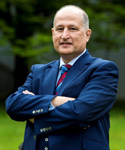
Prof Abdul Ghani Olabi
Renewable Energy Developments in UAE
Prof Olabi is Chair and Head of Sustainable and Renewable Energy Engineering Department "SREE" at the University Of Sharjah "UOS". Before joining UOS, he was the director and founding member of the Institute of Engineering and Energy Technologies at the University of the West of Scotland. Prof Olabi received his M.Eng and Ph.D. from Dublin City University, since 1984 he worked at different national and international institutes such as; National Research Centre-Italy "CNR", Research Centre of FIAT-Italy "CRF", Dublin City University "DCU" and Institute of Engineering and Energy Technologies "IEET" at UWS. Prof Olabi has supervised postgraduate research students more than 35 PhD to successful completion. Prof Olabi has edited more than 30 proceedings, and has published more than 350 papers in peer-reviewed international journals and international conferences, in addition to more than 40 book chapters. In the last 4 years Prof Olabi has patented 2 innovative projects. Prof Olabi is the founder of the International Conference on Sustainable Energy and Environmental Protection SEEP, www.seepconference.com and the International Conference on Materials Science and Smart Materials. He is the Subject Editor of the Elsevier Energy Journal, Editor in Chief of the Encyclopedia of Smart Materials (Elsevier), Editor of the Reference Module of Materials Science and Engineering (Elsevier), Editor in Chief of Renewable Energy section of Energies and board member of a few other journals. Prof Olabi has coordinated different National, EU and International Projects. He has produced different reports to the Irish Gov. regarding: Hydrogen and Fuel Cells and Solar Energy. Sustainable and Renewable Energy Engineering Department "SREE" has around 700 students, 15 academic members, 6 Engineers and administrators working on Teaching, Research and Innovation of the renewable energy sectors and related fields.






